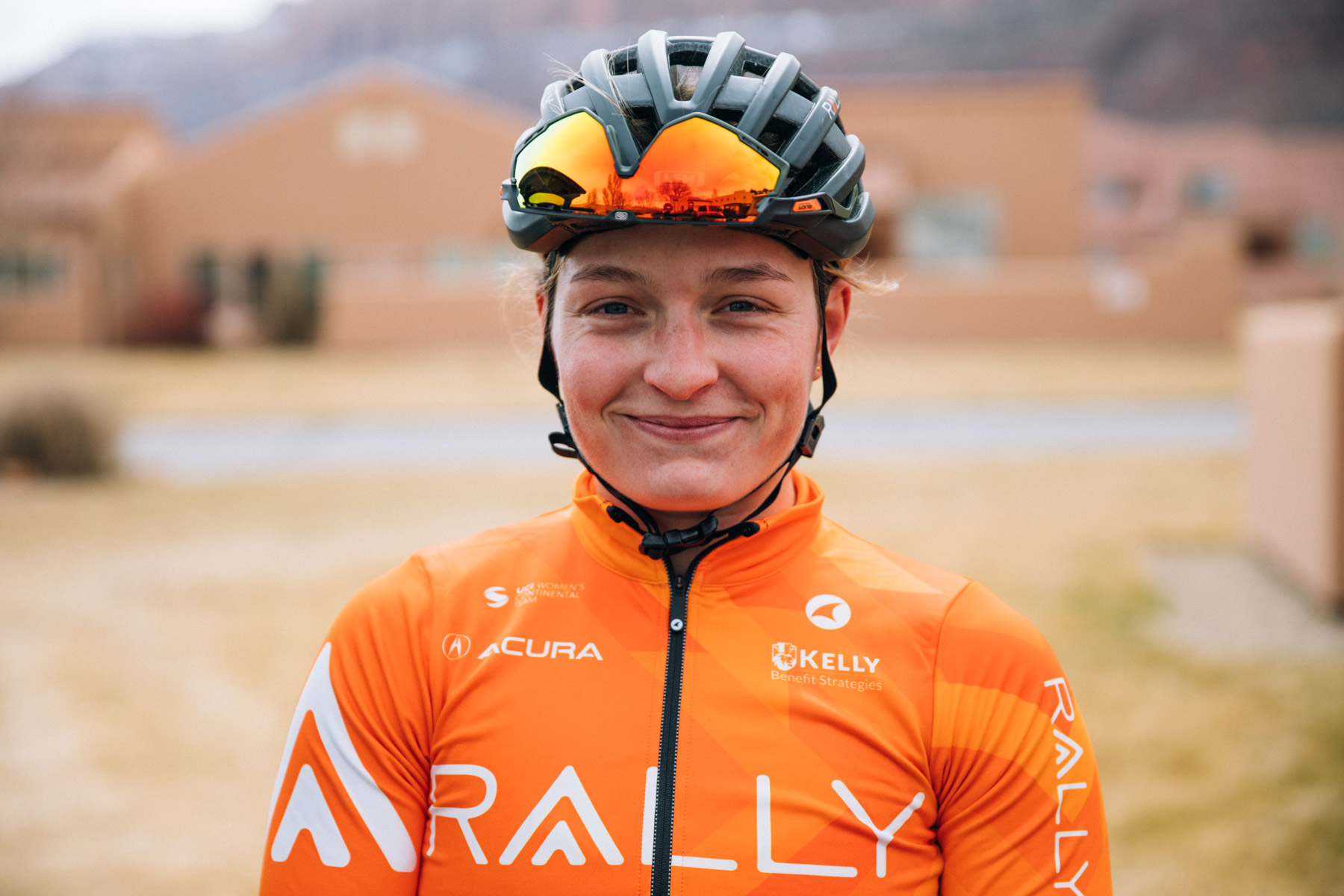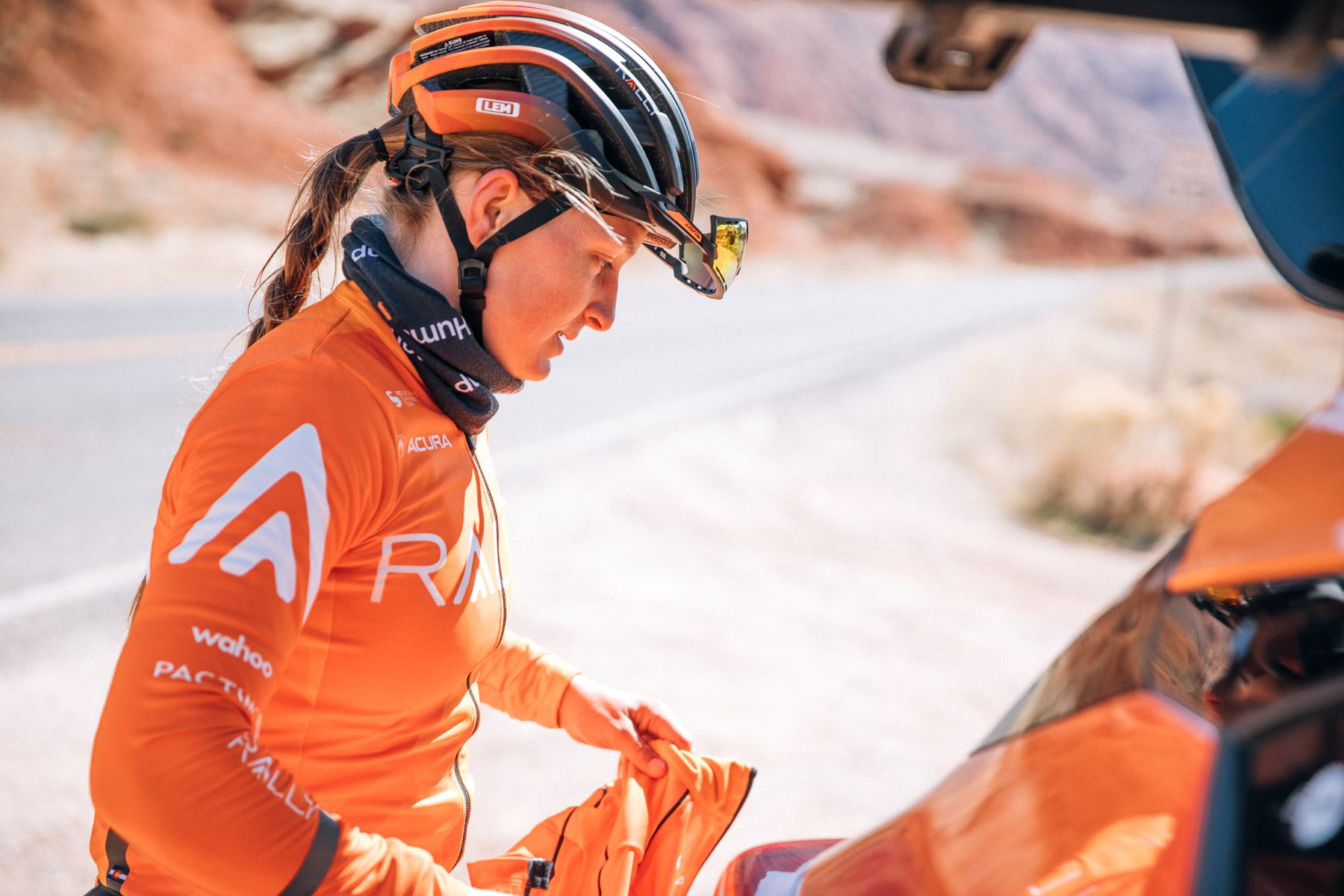Olivia Ray’s ‘body positive’ message to cycling
‘Finding what makes us happy and what allows us to feel most empowered by what we look like is, I think, the biggest thing’ says Rally Cycling rider

New Zealand cyclist Olivia Ray (Rally Cycling) volunteered to be part of team-sponsor Rally Health's discussion surrounding mental health awareness to focus on body positivity in cycling.
In an article published on her team's website Wednesday titled Body positive – how Olivia Ray defies the norm, Ray spoke about the prevalence and the dangers of athletes becoming focused on an ideal body image.
"I think we get stuck on an ideal image, the holy grail of a particular body type," Ray said. "Finding what makes us happy and what allows us to feel most empowered by what we look like is, I think, the biggest thing."
Ray, 22, is a professional cyclist currently under contract with the women's team Rally Cycling. However, she wasn't always a cyclist, but was enrolled in dance programmes, ballet, tap and jazz, from ages 3 to 16. She said, like in ballet, cyclists also face the growing pressures of ideal body types presented to them in their sport and by the media.
"If you are constantly seeing one specific body type in a sport, then it's easy to start thinking to yourself, 'maybe I should look like that' or to ask yourself 'why don't I look like that?'" Ray told Cyclingnews.
In the body positive article, Ray also said it's not healthy to internalise feelings of not having the ideal body type, calling such feelings counter-productive. "You can't wake up every morning saying, 'I hate what I look like, because that doesn't do anyone any good. I've always had in my head that it doesn't really matter what I would look like as long as I was winning or going fast."
Ray told Cyclingnews that she decided to publicly address body positivity to help tackle critical issues surrounding body image, weight loss vs power and performance, and how they are related to one another.
Get The Leadout Newsletter
The latest race content, interviews, features, reviews and expert buying guides, direct to your inbox!
"It makes some sense in that the less weight you have to drag up a hill, the easier it is, and power to weight ratios are important in cycling. There is a fine line between what's beneficial to performance and harming yourself. It has other dangers, too, for women, such as reproductive health problems. However, this issue affects both men and women," Ray told Cyclingnews.
"It's hard to determine where that line is, and so it's helpful to have someone to talk to about weight and performance."
Educating athletes on fueling, health and performance

Ray believes that there should be more experts among team management and staff that help guide athletes in a healthy direction regarding weight and performance. She also says that the education of younger athletes on fueling, health and performance is critical.
"I think for cycling, it would be good if there was more enforcement on fueling. That's the biggest thing, while you are riding, pre-and post-ride are the most important times for a cyclist – and if you're not giving yourself enough energy to do it or enough fuel post-ride you will feel bad, you will feel like crap, and you won't want to keep riding," Ray said in the article published on Rally Cycling's site.
Professional cycling teams are beginning to take a much more holistic approach to rider mental health, health and performance. Drops-Le Col supported by Tempur, was the first cycling team to launch a ground-breaking wellness programme aimed at enhancing the health and performance of its riders both on and off the bike. The team offered educational sessions about strength and conditioning, well-being and mental health and tracking menstrual cycles for its riders during the 2021 season.
Ray said that her story on body positively generated positive discussion on the subject across social media, including from other professional cyclists like Chloe Hosking, a former Rally rider who now races for Trek-Segafredo.
"We need more messaging like this. In life in general and in professional cycling in particular," Hosking wrote while retweeting the body-positive social media thread to her followers.
Ray said that one of the unique aspects of cycling is the wide range of body types in various disciplines, and she would like to see athletes embrace body positivity.
"Everyone has a different body type, and that's cool to have so many different outlets for body types. I don't want there to be a bias toward body types, and I want people to know that whatever body type you've got, whether it's built smaller or built bigger, figure out the ways that help your body to improve, it's all relative to each person," Ray said.
Ray reiterated that the overall message behind body positivity and sport is to prioritise performance and health.
"We need to look at performances over aesthetics. We can't sacrifice our performance for how we look," Ray told Cyclingnews. "I had a lot of people comment on the [body positive] post, saying more teams need to do this because nobody talks about it. The more people talk about it and athletes speak out about it, the better. We all need to utilize what we were born with, and there's only so much we can alter about ourselves."
Read the full article Body positive – how Olivia Ray defies the norm on the Rally Cycling team website and follow the body positivity social media thread on the team's official Twitter feed below.
Professional cycling is a sport in which athletes are affected by body image issues more than average. It’s hard to be wholly body positive when you compete in a sport that has, in the past, prioritized being skinny above all else. pic.twitter.com/seTmq3rn1DAugust 18, 2021

Kirsten Frattini is the Deputy Editor of Cyclingnews, overseeing the global racing content plan.
Kirsten has a background in Kinesiology and Health Science. She has been involved in cycling from the community and grassroots level to professional cycling's biggest races, reporting on the WorldTour, Spring Classics, Tours de France, World Championships and Olympic Games.
She began her sports journalism career with Cyclingnews as a North American Correspondent in 2006. In 2018, Kirsten became Women's Editor – overseeing the content strategy, race coverage and growth of women's professional cycling – before becoming Deputy Editor in 2023.